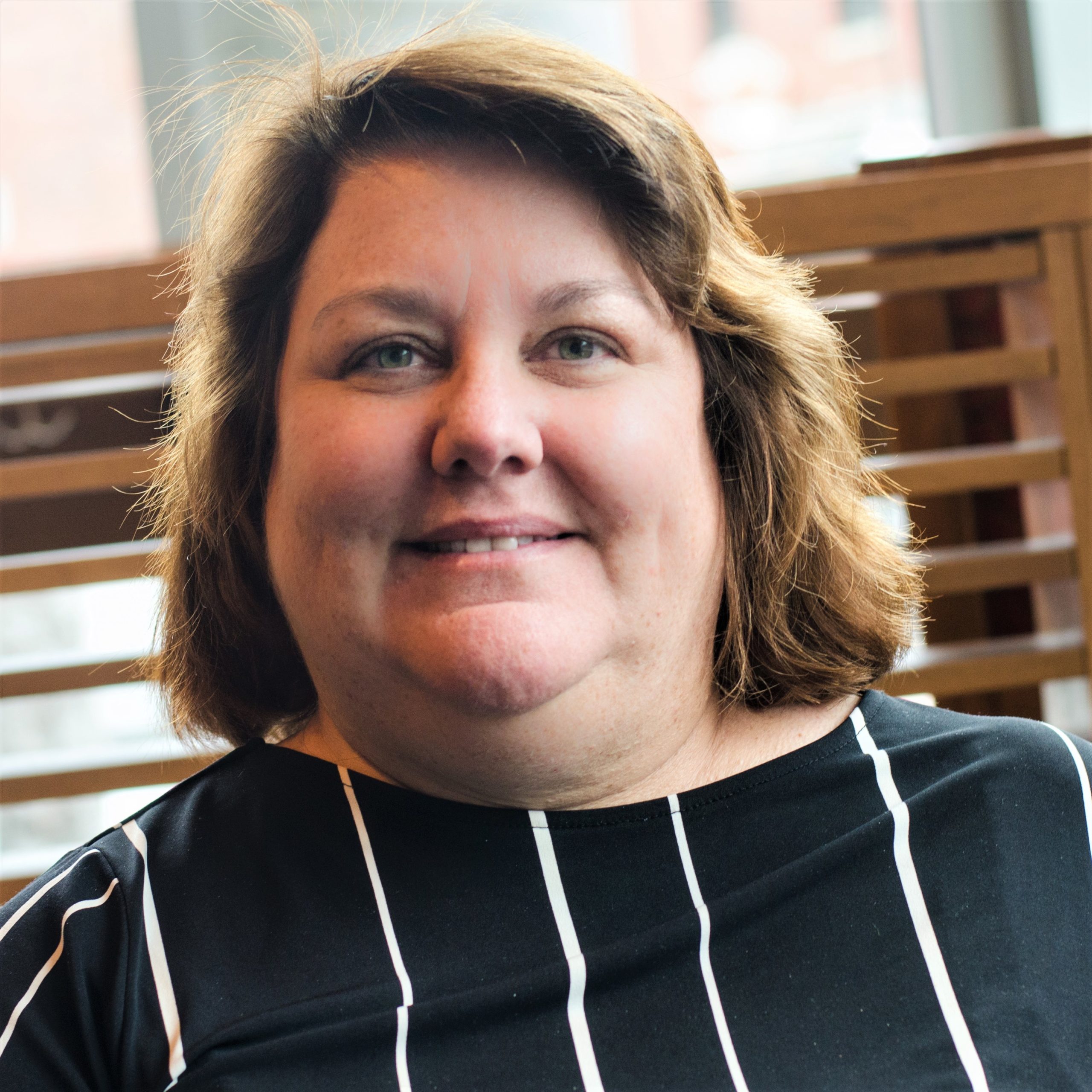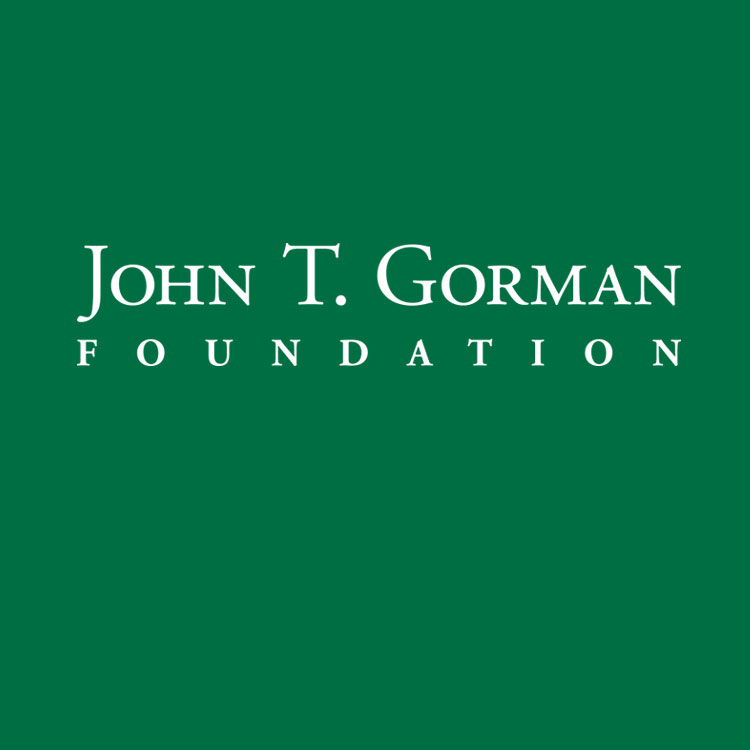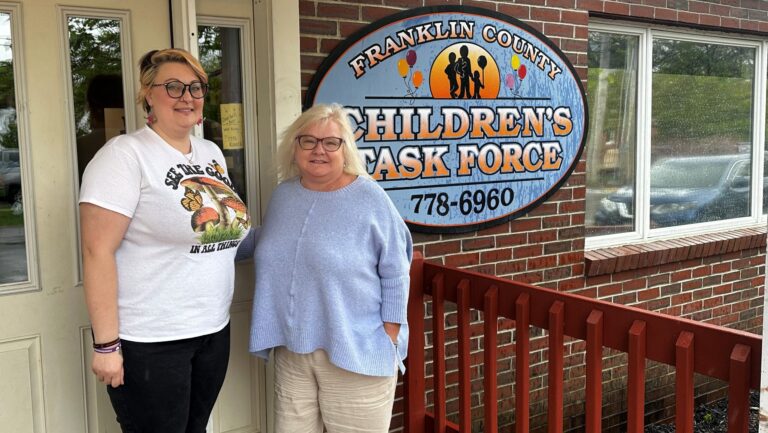When 300 asylum seekers unexpectedly arrived in Portland this summer, John T. Gorman Fellow Gail Cressey led successful efforts to prepare 85 immigrant children for the rapidly approaching school year.
In late June, groups of asylum seekers from Central African nations started to arrive in Portland by Greyhound bus. They would eventually number 300, including a significant number of children. Facing persecution and violence in their home countries, most had fled to South and Central America before making perilous journeys north. As they waited to enter the United States from Mexico, word spread about Portland—a place they had never heard of before, but that might welcome them and where others from their home countries had already built community.
The City of Portland and greater community acted quickly to meet the immediate needs of the new arrivals and house them in an emergency shelter at the Portland Expo. (Scroll down for information on how the Foundation contributed to these efforts.) But the community scrambled for answers to longer-term questions, the most urgent being where these families would go when the Expo had to be vacated at the end of summer.
2019 John T. Gorman Fellow Gail Cressey and her colleagues at the Portland Public Schools faced the same deadline and an equally daunting challenge—preparing 85 unexpected, soon-to-be students, most of whom with little or no knowledge of English, for the rapidly approaching school year.
‘An advocate for the underdog’

As Director of Intervention Strategies for Portland Public Schools, Gail considers herself “an advocate for the underdog.” She heads up the District’s strategies for helping students who struggle the most to meet their potential in school. Gail was drawn to Portland for both its unique challenges and its commitment in this area, especially as a District serving a diverse population that speaks over 60 languages.
One of the key strategies in Gail’s playbook was about to get underway when the new arrivals started coming to the city. Dozens of summer learning programs throughout the city offered students the chance to retain or add to what they learned during the school year, countering the “summer slide.” Serving 1,300 students, the summer programs include literacy programs for young kids, support for English Language Learners, and opportunities for high-school students to earn credits toward graduation.
It was quickly decided that the 85 school-age children living temporarily at the Expo—most of them elementary-school aged—would be among the students served.
“As an organization that values education as a key lever in creating successful communities and empowered individuals, we felt strongly that part of their basic needs being met when they arrived was starting their education as soon as possible,” Cressey said. “Summer is the perfect time to orient children to American schools, establish school routines, and grow their English skills.”
The question, then, was not whether to serve these children, but how.
Community Partners Step Up
Cressey said her team considered several options, but quickly settled on growing the capacity of the District’s existing programs. There was already a program underway for children living in the city’s family shelter. To that program, they added three more classrooms, and added another program for the 15 students who would be heading into Kindergarten.
Funding from John T. Gorman Foundation grantee Starting Strong helped cover some of the additional costs. Starting Strong is the early childhood component of Portland ConnectED—a cradle-to-career initiative to align community efforts toward improving academic success for all Portland students.
Matt Dubel, another John T. Gorman Fellow and the Executive Director of Portland ConnectED, said the decision to support the District’s efforts was an easy one. What these families went through to get to Portland demonstrates the incredible assets they bring to the community, but the trauma their children experienced, as well as language and cultural barriers, would present great challenges in school, Dubel noted. “We owe it to them to help their children overcome the obstacles to succeed,” he said.
Foundation Joins Community Efforts To Help New ArrivalsThe John T. Gorman Foundation is proud of the community’s quick and generous response to meet the immediate and longer-term needs of hundreds of asylum seekers who arrived in Portland last summer. It was a privilege to join other philanthropic organizations in supporting several of these initiatives. In addition to the Starting Strong funding mentioned in this article, the Foundation made several grants, including:
To the all the nonprofits and individuals who rose to this summer’s challenge, thank you. And to our newest neighbors, welcome! |
‘We believed we could do it … and we did!”
Cressey listed three goals for the programming: help students acclimate to American schools and the daily routine, begin the basics of learning English, and help the children develop strong relationships with adults so they feel that school is a safe and supportive place.
Now that school is in session, students have come to the classroom a step ahead of where they would have been without programming. “By the end of the summer, some were reading books in English,” said Cressey. “It was remarkable.”
Cressey credits many factors to the success—the strong desire of parents to begin their children’s education, the infrastructure and experience the Portland Public Schools has in place to serve new Mainers, the generous contributions of partners, the dedicated teachers, and a shared sense of responsibility and urgency in the community.
In her words, “We believed it was the right thing to do, and we believed we could do it…and we did!”


